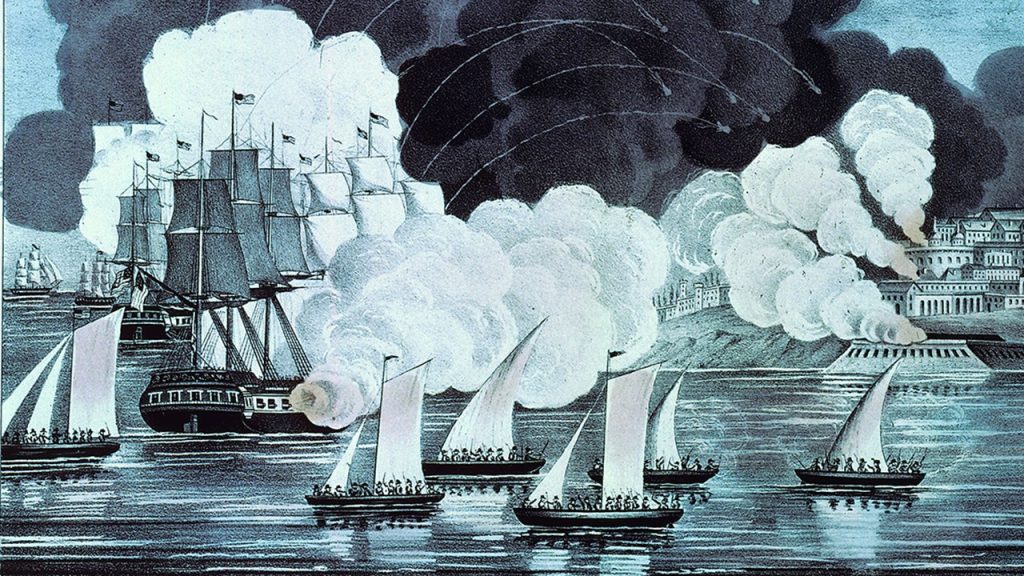On April 27, 1805, the United States Marine Corps achieved a miraculous victory in the Battle of Derna in present-day Libya, marking the climax of the First Barbary War. American ships had been targeted by pirates in the Mediterranean, leading to President Thomas Jefferson sending a fleet to combat the issue. The Battle of Derna resulted in the raising of the American flag over a captured stronghold, forcing the Barbary pirate leaders to negotiate and eventually sign the Treaty of Tripoli, ending the war. The battle was a remarkable display of courage and resolve by a small band of Marines and mercenaries.
Led by Marine Corps Lt. Presley O’Bannon and former Army captain William Eaton, a diverse force of 400 men, including mercenaries and U.S. Marines, embarked on a 400-mile march from Egypt to Derna. The march faced numerous challenges, including mutiny, hunger, and religious tensions but culminated in a successful assault on the pirate stronghold, with the support of U.S. Navy warships offshore in one of the first joint-force attacks in American military history. The assault on the fortified city was a risky venture that paid off, leading to the surrender of the Tripolitan forces and the Treaty of Tripoli in June.
The Battle of Derna showcased the courage and tenacity of the Marines, earning them praise and recognition for their heroic efforts. Lieutenant Presley O’Bannon was presented with an elaborately designed sword by Hamet Karamanli, marking the valor displayed by the Marines in the battle. The success of the operation was attributed to intrepid leadership, U.S. Navy support, and sheer determination, highlighting the effectiveness of joint-force operations in achieving military objectives. The victory in Derna was a turning point in the First Barbary War, leading to the release of captured crewmen and the restoration of peace in the region.
The Battle of Derna was a significant milestone in American military history, symbolizing the courage and fighting spirit of the United States Marine Corps. The capture of the pirate stronghold and the subsequent negotiation of the Treaty of Tripoli demonstrated the effectiveness of American military power in combating threats to its interests abroad. The battle also foreshadowed future joint-force operations and showcased the importance of collaboration between branches of the military in achieving strategic objectives. The legacy of the Battle of Derna lives on in the annals of American military history as a testament to the bravery and determination of the Marines in defending the nation’s interests.
The Battle of Derna was a pivotal moment in American history, immortalized in patriotic anthems and remembered for the courage displayed by the United States Marine Corps. The triumph over overwhelming odds in the face of adversity highlighted the values of honor, courage, and commitment that continue to define the Corps to this day. The legacy of the battle serves as a reminder of the sacrifices made by those who came before us in defense of freedom and justice, and the importance of upholding these values in the face of challenges. The Battle of Derna remains a symbol of American resilience and determination in the face of adversity, inspiring future generations to carry on the tradition of service and sacrifice for the greater good.


